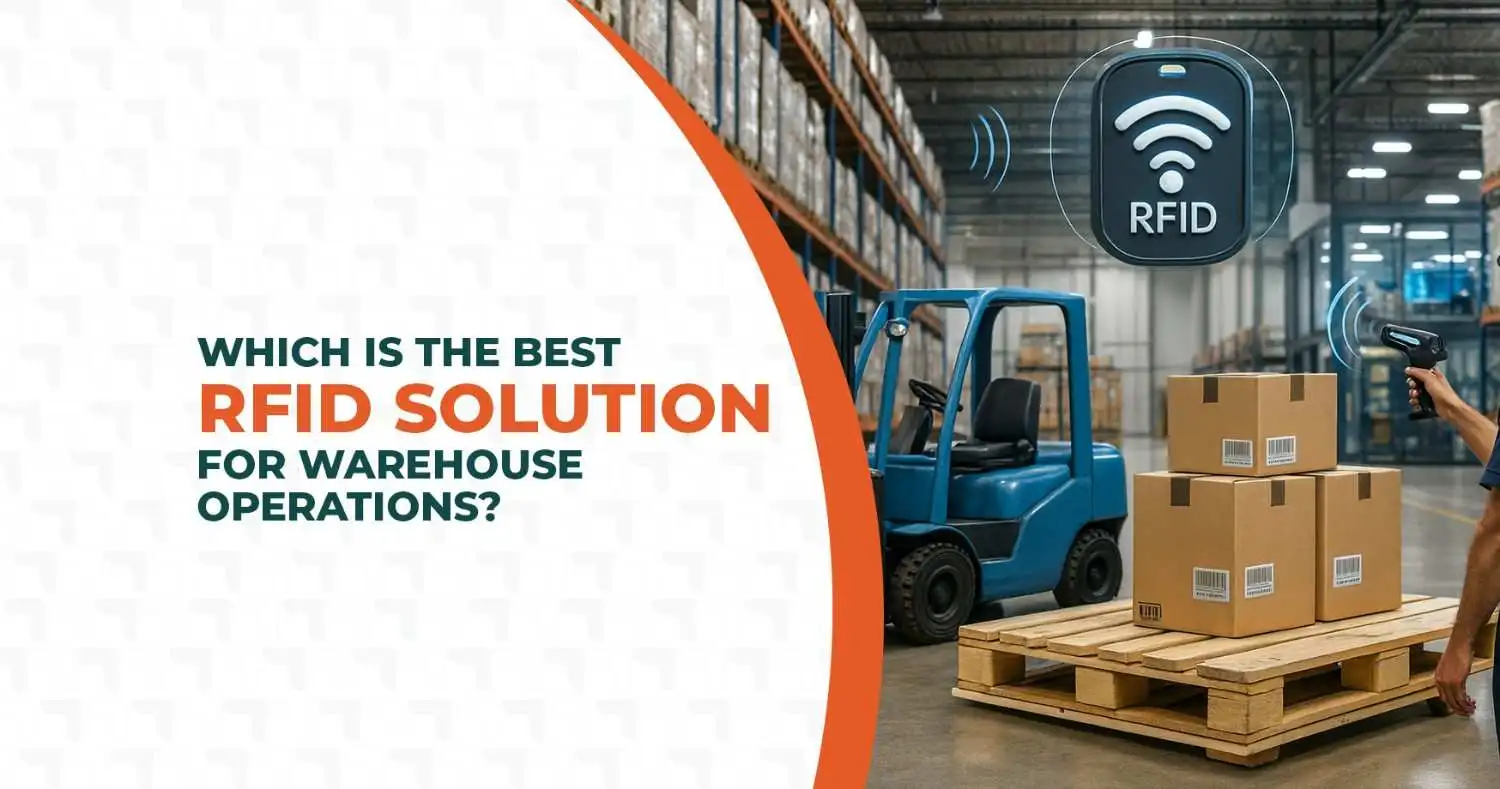
What is a Cold Chain Solution: The Ultimate Guide
A cold chain solution is a storage solution used to maintain products sensitive to temperature during handling, storage, transit, and distribution. Thus, the cold chain disables spoilage, deterioration, or loss of potency because temperature-sensitive products such as vaccines, perishable food items, pharmaceuticals, and chemicals have coordinated temperatures outside the permissible ranges. Such solutions introduce thermal insulated packaging, refrigeration, and real-time monitoring devices to preserve particularly defined temperature ranges throughout the life cycle of the product. The industries that rely on cold chain solutions are primarily healthcare, food, and chemicals. The reasons they do so are regulatory compliance, waste reduction, and consumer confidence.
With various IoT technologies, cold chain temperature monitoring plays a pivotal role in ensuring the tracking of products for humidity, temperature, and location continuously. Cold chain monitoring is also part of the Automated Intelligence Platforms (AIP), which deliver predictive analysis and real-time alerts to avert disruptions. With smart logistics, AI-enabled analytics, and automation, organizations will better their supply chain efficiency and product integrity through continued compliance with stringent industry regulations.
What is a Cold Chain Solution?
The management and implementation of technology to store, transport, and distribute temperature-sensitive products within defined temperature ranges is called a cold chain solution. Maintaining vaccine, food, medicine, and chemical quality and safety requires it. Cold chain solutions include essential elements:
Temperature control: keeps production and distribution at the same temperature.
Packaging: Thermal materials maintain product temperature.
Transportation: Uses gel packs, dry ice, liquid nitrogen, or chilled vehicles.
Monitoring: Real-time supply chain solution temperature monitoring.
Risk Management: Identifies and mitigates delays and logistical issues.
With these aspects, cold chain solutions improve product shelf life, assure regulatory compliance, and avoid supply chain loss or damage.
Key Components of a Cold Chain Solution
Several interconnected components make up a cold chain system to protect temperature-sensitive products. These components maintain temperature conditions from storage to delivery.
Each major component is explained in depth below:
Storage
Cold chain solutions rely on refrigerated warehouses and infrastructure. These facilities use modern chilling systems to preserve vaccines, perishable foods, and medications before transit or distribution. Proper storing prolongs product life and prevents spoilage.
Transportation
Refrigerated trucks and transport containers are needed for temperature-sensitive goods. These transportation technologies ensure product integrity throughout long-distance transmission by maintaining stable temperature levels.
Systems for monitoring
Real-time temperature tracking requires sensors, IoT devices, and software. These systems alert operators of irregularities, allowing them to quickly mitigate hazards and comply with regulations.
Packaging
During transport, insulated crates, gel packs, and dry ice preserve product temperature. These materials shield products from environmental conditions.
A strong cold chain solution keeps temperature-sensitive products safe, effective, and high-quality from start to end.
Importance of using Cold Chain Solutions
Cold chain systems protect temperature-sensitive products in several sectors. Key reasons they're indispensable:
Product Quality and Safety
Cold chain solutions keep perishables like food, vaccines, and blood at the right temperature from manufacturing to consumption. Vaccines maintained at controlled temperatures remain potent, saving public health.
Lowering Waste and Spillage
In the food business, cold chain solutions reduce spoilage and waste by maintaining product quality. Resource loss is reduced, improving supply chain efficiency and sustainability.
Regulatory Compliance
Companies making temperature-sensitive products must follow tight regulations. Cold chain solutions help firms comply and preserve consumer trust.
Modern supply chains need cold chain solutions for food safety and life-saving medical supplies.
Industries Relying on Cold Chain Solutions
Industries that handle, transport, and store temperature-sensitive items need cold chain solutions. These solutions are crucial to these industries:
Pharmaceutical
Vaccines, biologics, and other drugs need cold-chain solutions to stay safe and effective. Drugs like insulin and blood plasma need precise temperature management to stay potent and meet medical standards.
Food and Drink
The food and beverage business uses cold chain logistics to preserve dairy, meat, fish, frozen foods, and fresh produce. These technologies keep food fresh from farm to table and exceed food safety standards by maintaining appropriate temperatures.
The Chemical Industry
Chemically sensitive substances and materials need regulated conditions to avoid deterioration or harmful reactions. Cold chain solutions keep these products safe and usable.
These industries show how cold chain solutions protect quality, safety, and efficiency.
Benefits of Implementing a Cold Chain Solution
The benefits of a cold chain solution affect product quality, operational efficiency, and customer happiness. Some important benefits:
Improved customer satisfaction
Cold chain solutions help organisations develop trust and loyalty by delivering food, pharmaceuticals, and chemicals in good condition. Products are safe, fresh, and high-quality, improving customer satisfaction.
Extended Product Shelf Life
Cold chain solutions improve perishable commodities' shelf life by maintaining temperature. Fresh vegetables, frozen meals, and sensitive drugs need this to last longer.
Better industry standard compliance
Strict temperature controls and real-time data collection help organisations meet regulations. This avoids legal or reputational concerns from compromised products by meeting industry standards.
Ensure Product Integrity and Reduce Wastage
By preventing spoilage and contamination, cold chain solutions preserve product integrity and minimize losses, leading to lower wastage and higher efficiency.
Enhance Sustainability
With optimized energy use and reduced waste, cold chain solutions support sustainable practices, helping businesses lower their environmental impact.
Cold chain solutions help firms maintain product quality, decrease waste, and compete in highly regulated industries.
How to Choose the Right Cold Chain Solution?
The safety and quality of temperature-sensitive items depend on choosing the correct cold chain solution. Make an informed choice by considering these factors:
Industry-Specific Needs Assessment
Find out what your industry needs. Pharmaceuticals need ultra-low temperature storage, while food companies want to preserve freshness and shelf life. Make your solution fit these needs.
Technology and Infrastructure Evaluation
Look for solutions with IoT-enabled temperature monitoring, real-time warnings, and remote access. Insulated packaging and reliable storage and transportation mechanisms should be included.
Partnering with Reliable Logistics Providers
Choose logistics experts with cold chain experience. Assess their sustainability, regulatory compliance, and 24/7 support.
You can develop a reliable cold chain solution that protects product integrity and efficiency by considering these factors. BCI’s iOT Technology can also help companies to implement cold chain solutions.
Technological Advancements in Cold Chain Solutions
Modern technology improves cold chain efficiency, accuracy, and sustainability. Here are industry-changing innovations:
IoT and Real-Time Tracking
5G-connected IoT devices detect temperature, humidity, and GPS in real-time. These technologies generate instant deviation alerts for faster corrective action and product safety.
Better Decision-Making with AI and Predictive Analytics
Operations can analyse historical data, identify dangers, and optimise routes using AI and data analytics. We eliminate delays, spoilage, and operational inefficiency with our proactive strategy.
Sustainable Solutions like Eco-Friendly Packaging and Energy-Efficient Systems
To lessen environmental effects, eco-friendly packaging materials and energy-efficient refrigeration technologies are being employed. Supply chain traceability and transparency from blockchain technologies boost sustainability.
Modern logistics requires these innovations to increase cold chain reliability and comply with changing legal and environmental norms.
Conclusion
In conclusion, cold chain solutions ensure the safety, quality, and efficacy of temperature-sensitive products in many industries. Temperature control, monitoring systems, packaging, and transportation are essential to cold chain solutions, which protect vaccines, pharmaceuticals, and food. They mitigate spoilage, assure regulatory compliance, and improve customer happiness.
In current supply chains, cold chain solutions are crucial. IoT, AI, and sustainable practises can boost corporate productivity and reduce environmental impact.
Businesses that want to stay competitive, fulfill regulations, and deliver high-quality products must invest in innovative cold chain solutions. Adopt cold chain improvements to ensure supply chain reliability.
FAQs
What is a cold chain solution?
A cold chain solution is the ecosystem of processes, products, technology, experience, and management that safely stores, transports, and distributes temperature-sensitive items. It controls product temperature from manufacture to consumption, protecting quality.
What is the concept of a cold chain system?
The cold chain regulates vaccine storage and distribution. A refrigeration system maintains the proper temperature range, protecting product potency and effectiveness during national-to-local delivery.
What is the objective of the cold chain?
Perishable and medicinal products are the main focus of a cold chain. Cold chain solutions keep these items safe and effective from manufacture to consumption by maintaining the right temperature.
Get in Touch
Ready to take your business to the next level with BCI (Bar Code India)? We're just a phone call or email away.


